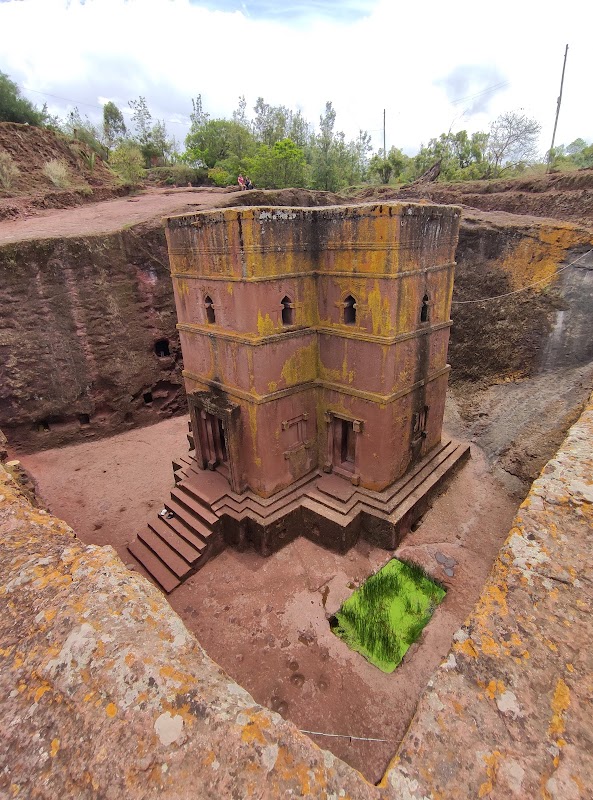
Experience Timkat Festival in Lalibela, Amhara—a vibrant Epiphany celebration set against Ethiopia’s dramatic landscapes. This guide prepares you for an adventure blending cultural immersion with a practical hike through historic terrain, offering tips to make your visit unforgettable.
Start Early to Beat the Heat
Morning temperatures are cooler for hiking and photography; festival crowds also tend to be lighter before midday.
Bring Sufficient Water
The dry highland air intensifies dehydration; carry at least 2 liters per person and replenish whenever possible.
Wear Hiking Shoes with Good Traction
Trails near rivers and rocky paths can be slippery, especially in shaded or mossy areas—avoid smooth-soled footwear.
Respect Local Customs During the Festival
Timkat is a deeply spiritual event; ask before taking photos and follow guidance from community leaders and guides.
Timkat Festival in Lalibela: An Epiphany Adventure in Amhara
Every January, the rugged highlands of Lalibela, Amhara, pulse with energy as the Timkat Festival unfolds — a celebration of Epiphany that draws pilgrims and adventurers alike. This event is more than a spectacle; it’s a leap into Ethiopia’s spiritual heart and its fiercely alive landscape. The journey begins with a hike through the undulating terrain that frames Lalibela’s ancient rock-hewn churches, a UNESCO World Heritage site that few places rival in raw cultural intensity.
The hike itself is manageable, covering roughly 5 to 7 kilometers through rolling hills with an elevation gain of about 300 meters. Paths wind alongside ancient acacia trees and over rugged stone paths worn smooth by centuries of footsteps. The air here feels thick with history, with rivers nearby daring you to cross their shimmering surfaces, while the sun plays through scattered clouds, spotlighting the festival’s colorful processions.
Timkat marks the day of Christ’s baptism, and Lalibela’s celebration brings a vivid splash of blue and gold robes, illuminated crosses, and ceremonial chants that echo off rocky cliffs. The festival’s core includes the blessing of the water, symbolic and powerful, pulling visitors into a shared reverence.
Practical planning is key. The best time to be on foot here is early morning when the light is soft and temperatures manageable. Water is a constant companion; the dry Amhara air pushes you to stay hydrated. Sturdy footwear with good grip is essential, as the terrain can shift rapidly from dusty trails to slick, mossy patches near water.
While the hike is not technically demanding, it commands respect. The landscape is fiercely itself — weather can change quickly, so layers are necessary, and the cultural significance calls for a mindful approach. Participate actively but respectfully.
Timkat is an adventure that balances sacred serenity with outdoor vigor. Expect to meet local guides who share stories steeped in centuries, discover hidden viewpoints overlooking Lalibela’s forested valleys, and be present for a festival that moves with the rhythm of both faith and wilderness.
For those plotting this journey, pack lightly but thoroughly: hydration packs, layered clothing, and trail shoes should top your checklist. Timing is critical—arrive ahead of the main festival to experience the quiet before the spiritual storm. This is an expedition into a place where history, culture, and nature converge in a procession fiercely alive and vividly unfolding before your eyes.
Nearby Trips
All Adventures
Boat Charters
Water Activities
Adventures near Lalibela, Amhara
Discover the unique and memorable adventures that make Lalibela, Amhara special.
Frequently Asked Questions
What should I know about local etiquette during Timkat?
Timkat is a solemn religious occasion. Dress modestly, avoid loud behavior, and always ask before photographing people or sacred objects. Participating respectfully enhances the experience without intruding.
Is the hike suitable for children or casual hikers?
Yes, the hike is moderate and manageable for fit children and casual hikers, but pacing yourself and bringing plenty of water is crucial. Avoid midday heat and rest when necessary.
Are guides available for the festival hike?
Local guides offer invaluable insights into the history and cultural nuances of Timkat, as well as assistance with the trail’s navigation—especially useful for first-time visitors.
What wildlife might I encounter near Lalibela during the festival?
Look for the endemic Ethiopian highland birds like the thick-billed raven and the Abyssinian catbird. The area’s rivers host amphibians and small mammals that emerge in early January.
Can I access the rock churches during the festival?
The rock-hewn churches are active worship sites; access is generally limited to non-disruptive observation. Some churches open briefly for tourists between ceremonies.
How can I prepare for sudden weather changes during my hike?
Pack a lightweight waterproof jacket and extra layers. The highland climate can shift quickly from sun to mist or drizzle, particularly near the river valleys.
Recommended Gear
Sturdy Hiking Shoes
Provides grip and ankle support over uneven, sometimes slippery terrain.
Hydration Pack or Water Bottle
Critical for hydration in dry, high-altitude conditions.
Light Layered Clothing
Allows adjustment to fluctuations in temperature from cool mornings to warm afternoons.
Sun Protection (hat, sunscreen)
Ethiopia’s sun can be intense even during cool months, protect skin and eyes.
Local Insights
Hidden Gems
- "The under-visited Asheton Maryam viewpoint offers sweeping views of Lalibela’s valleys far from the festival crowds."
- "Secluded trails near the Adar River provide quiet, shaded walks alongside babbling currents."
Wildlife
- "African rock hyrax sightings are common on the rocky cliffs around Lalibela."
- "Look for endemic bird species such as the blue-winged goose in wetlands near the town."
History
"Lalibela’s churches date back to the 12th century, crafted from volcanic rock by artisans following King Lalibela’s vision of a 'New Jerusalem.' Timkat reaffirms spiritual connections to these ancient sites amid vibrant community rituals."
